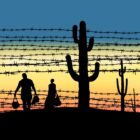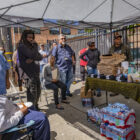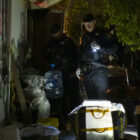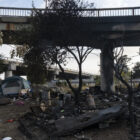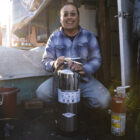On a recent morning on San Francisco’s Pier 9, New Zealand’s prime minister and other officials finalized plans to electrify Angel Island-Tiburon Ferry’s fleet.
The project, part of a statewide push to satisfy green-energy mandates, will create jobs for Latino San Rafael residents who might otherwise struggle to break into the green-energy field.





